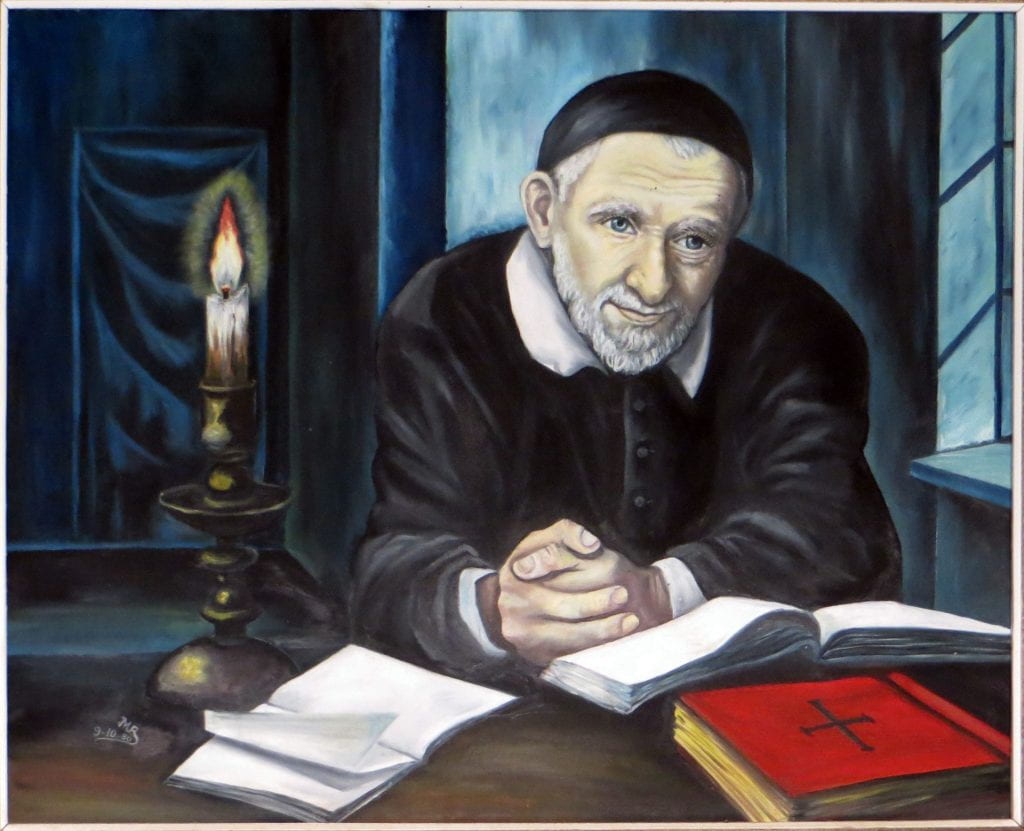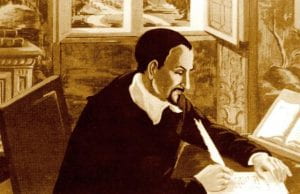In January of this year, President Rob Manuel formally launched “Designing DePaul,” a process to envision our university’s future. The goal: becoming the national model for higher education. As part of Designing DePaul, our community will engage in meetings, visioning sessions, and other conversations all contributing to making this goal a reality. Given DePaul’s bountiful resources, namely, our talented faculty, staff, and leadership; generous alumni and supporters; vibrant Chicago-setting; rich heritage; and energetic, forward-looking student body, I believe we stand a good chance of achieving this goal.
But, in planning our future, we might be well served to also look to our past and ask: How would Vincent de Paul design the university that bears his name? While he surely never contemplated such an endeavor, Vincent did leave us with a rich store of wisdom, based on experience and infused by faith, that could guide us in answering that question. What follows are principles, highlighted by Vincent in his conferences with the Daughters of Charity and Vincentian priests, as they together first established what is now known, almost 400 years later, as the global Vincentian Family. Perhaps they may help in our design.
- Be guided by the Mission.[1] Vincent’s sole motivation, for himself and his communities, was to stay true to their mission. For Vincent, this mission consisted of both following the example of Jesus Christ in serving the poor as well as listening always for the will of God. For us, the roots of our mission are fed not only by these Vincentian and Catholic values including service, justice, and human dignity but also by the highest aspirations of a university: to foster the integral human development of our students.[2] If a community were to stray from its mission, Vincent believed, it would ultimately lead to its decline.
- In the treasure trove of correspondence, conferences, and documents left to us by Vincent de Paul, we learn that he communicated frequently, about all manner of things, with his community members. He conversed transparently, listened deeply, shared humbly, and encouraged their commentary. Although today’s popular means of communicating would be unrecognizable to Vincent, his approach to communicating is timeless and worth remembering.
- Believe in what you are doing and the value of each role. To his community members, Vincent often spoke of the goodness of their vocations and the value of their work. In that same spirit, we must believe in the fundamental importance and goodness of what we are endeavoring to do here at DePaul. Moreover, every member of our community must honor and value their own role in that endeavor as well as the role of others.
- In your work, act pragmatically and prioritize the common good. When advising his far-flung communities about their various daily operations, Vincent emphasized good stewardship of resources, conscientious management, and pragmatic responses to the many issues that arose.[3] Importantly, his advice always prioritized the common good, of the community and those they served, over the self-interest of the few.
As we each continue to play our role within the DePaul community—as student, staff, faculty, or supporter—and as our university collectively commits to boldly charting our future, perhaps the above principles will help to light the way. For the moment, it may be beneficial to visit another Vincentian quote on the matter. In writing to one of his far-off missionaries, a person known for his zealous commitment to the mission, but who was then meeting with resistance and struggling with feelings of failure, Vincent reassured his companion that his “good will and honest efforts”[4] were enough. By expending our good will and honest efforts, and drawing upon the wisdom of our heritage, certainly we will have done enough.
Invitation for Reflection:
What do you think of these Vincentian principles both as they might apply to Designing DePaul and more generally? Do you think they are worth following? If so, how might you apply them?
Reflection by: Tom Judge, Assistant Director and Chaplain, Faculty and Staff Engagement, Division of Mission and Ministry
[1] Conference 59, “The Preservation of the Company,” May 25, 1654, CCD, 9:536. Available online at https://via.library.depaul.edu/vincentian_ebooks/34.
[2] “University Mission Statement,” Division of Mission & Ministry, adopted March 4, 2021, https://offices.depaul.edu/mission-ministry/about/Pages/mission.aspx.
[3] Conference 83, “The Management of the Property of the Poor and of Community Goods (Common Rules, Art. 10),” August 26, 1657, CCD, 10:245. Available online at https://via.library.depaul.edu/vincentian_ebooks/35.
[4] Letter 962, “To Etienne Blatiron, Superior, in Genoa,” June 21, 1647, CCD, 3:206. Available online at https://via.library.depaul.edu/vincentian_ebooks/28/.

